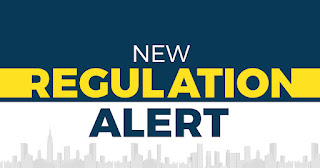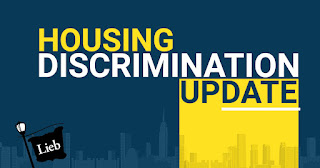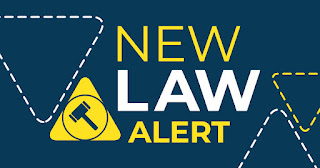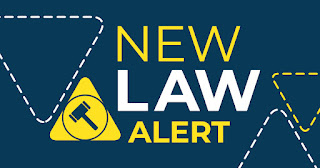On 12/23/2020, the NYS Department of State proposed mandating fair housing education as a condition of license renewal for appraisers and assistant appraisers.
The proposed regulations would be at 19 NYCRR 1107.2(b), 19 NYCRR 1107.33(a), (b), and (c), and 19 NYCRR 1107.34.
In substance, the regulations would require that every licensed or certified appraiser complete an approved course of study in Fair Housing and Fair Lending every two years with the following course topics:
a) 7 Hour Introduction to Fair Housing and Fair Lending Instruction
b) 4 Hour Update on Fair Housing and Fair Lending Instruction
Now, we are in the public comment period until 02/21/2021. To make your comments, email the regulator at david.mossberg@dos.ny.gov
While we are very encouraged by increased fair housing and anti-discrimination trainings being required in NYS, we are concerned with how specific the subtopics of education are and how they offer no explanation as to what exactly the government is looking for within each subtopic. We are also concerned about how this requirement will impact federal government contractor appraisers who must follow Executive Order 13950 on Combating Race and Sex Stereotyping and are therefore restricted on engaging in trainings on unconscious bias or implicit bias to the extent that "it teaches or implies that an individual, by virtue of his or her race, sex, and/or national origin, is racist, sexist, oppressive, or biased, whether consciously or unconsciously," per the US Department of Labor. We hope that these issues will be addressed before this regulation is finalized.
To the specific subtopic requirements, under topic a), the subtopics are as follows:
(1) Fair housing, fair lending requirements, and the history of lending 2 hours
(a) What is fair housing?
(b) What is fair lending?
(c) Roadblocks to fair housing/lending
(d) Federal laws Civil Rights Act of 1866
Civil Rights Act of 1964 Fair Housing Act of 1968
Supreme Court
The Housing and Community Development Act of 1974
The Fair Housing Amendment Act of 1988
Other legislation
- Community Reinvestment Act
- Equal Credit Opportunity Act
- Home Mortgage Disclosure Act
- Real Estate Settlement Procedures Act American Disabilities Act
(ADA)
(e) New York State Law - Executive Law includes the Civil Rights
Law of the State (NY Human Rights Law - Article 15)
- Additional protected classes; age and marital status
- Includes residential property, land commercial property and credit
transactions
(f) Local Regulations
(g) Exemptions and Exceptions
- Senior Citizen Housing
- Drug users and alcohol abusers
- Two family exemption
(h) USPAP/FIRREA
(i) Enforcement and Duties
-U.S. Department of Justice
-Department of Housing and Urban Development (HUD)
-New York State Department of State, Division of Licensing
-New York State Division of Human Rights
-Administrative Law Judges
-Federal and State Courts
-Responsibilities of individual appraisers
(j) Penalties New York State Federal Government
(2) Development of appraisal (Standard 1 USPAP) 1.5 hours
(a) Bias and discrimination in the analysis in development
(b) Documentation of sources
(c) Secondary market guidelines Fannie Mae, Freddie Mac, HUD,
VA
(3) Reporting of appraisal results (Standard 2 USAP) 1.5 hour
(a) Bias and discrimination in the report
(b) Documentation of sources
(c) Secondary market guidelines Fannie Mae, Freddie Mac, HUD,
VA
(4) Case studies 2 hours
(a) Neighborhood issues
(b) Improvement issues
(c) External obsolescence
(d) Conscious and Unconscious bias
Under topic b), the subtopics are as follows:
(1) Fair housing, fair lending requirements, and the history of lending 1 hour
(a) What is fair housing?
(b) What is fair lending?
(c) Roadblocks to fair housing/lending
(d) Federal laws Civil Rights Act of 1866
Civil Rights Act of 1964 Fair Housing Act of 1968
Supreme Court
The Housing and Community Development Act of 1974
The Fair Housing Amendment Act of 1988
Other legislation
- Community Reinvestment Act
- Equal Credit Opportunity Act
- Home Mortgage Disclosure Act
- Real Estate Settlement Procedures Act American Disabilities Act
(ADA)
(e) New York State Law - Executive Law includes the Civil Rights
Law of the State (NY Human Rights Law - Article 15)
- Additional protected classes; age and marital status
- Includes residential property, land commercial property and credit
transactions
(f) Local Regulations
(g) Exemptions and Exceptions
Senior Citizen Housing
Drug users and alcohol abusers
Two family exemption
(h) USPAP/FIRREA
(i) Enforcement and Duties
-U.S. Department of Justice
-Department of Housing and Urban Development (HUD)
-New York State Department of State, Division of Licensing
-New York State Division of Human Rights
-Administrative Law Judges
-Federal and State Courts
-Responsibilities of individual appraisers
(j) Penalties New York State Federal Government
(2) Development of appraisal (Standard 1 USPAP) 1 hour
(a) Bias and discrimination in the analysis
(b) Documentation of sources
(c) Secondary market guidelines Fannie Mae, Freddie Mac, HUD,
VA
(3) Reporting of appraisal results (Standard 2 USAP) 1 hour
(a) Bias and discrimination in the report
(b) Documentation of sources
(c) Secondary market guidelines Fannie Mae, Freddie Mac, HUD,
VA
(4) Case studies 1 hour
(a) Neighborhood issues
(b) Improvement issues
(c) External obsolescence
(d) Conscious and Unconscious bias

.jpg)
.jpg)

















